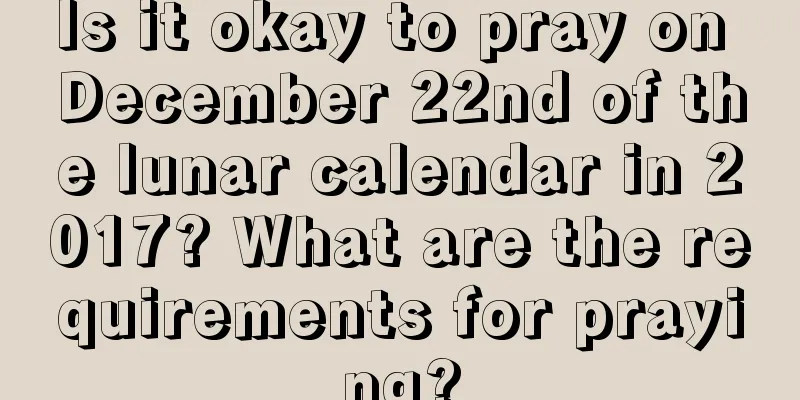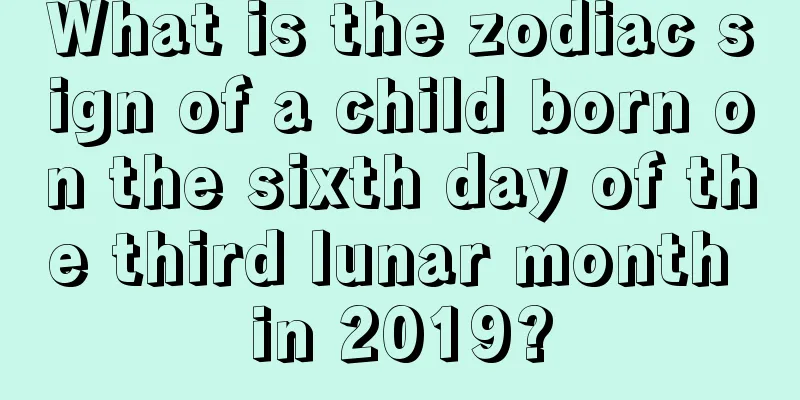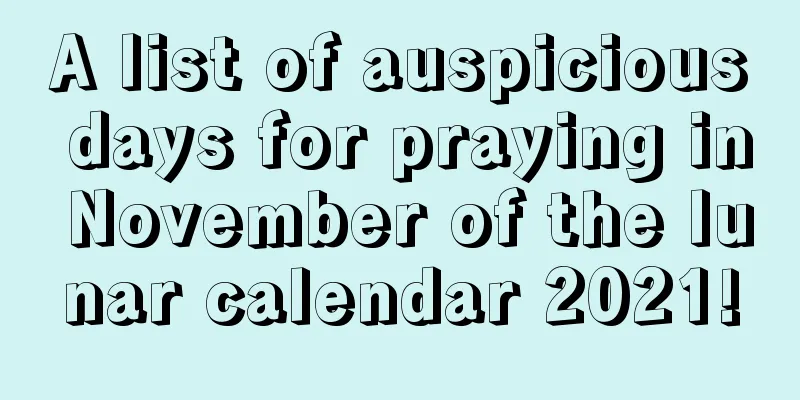What is the difference between the Lantern Festival and the Ghost Festival? When are they?

Many people think that the Lantern Festival and the Ghost Festival are the same festival, which is actually incorrect. So what is the difference between the Lantern Festival and the Ghost Festival? When were they respectively? Let’s take a look at the following content!What is the difference between the Lantern Festival and the Ghost Festival?There are three festivals in China, namely the Shangyuan on the 15th day of the first lunar month, the Zhongyuan on the 15th day of the seventh lunar month and the Xiayuan on the 15th day of the tenth lunar month. Shangyuan is the birthday of the Emperor of Heaven. In the Tang Dynasty, the 15th day of the first, seventh and tenth month were called Shangyuan, Zhongyuan and Xiayuan. Among them, the Shangyuan Festival is for worshipping the God of Heaven, the Zhongyuan Festival is for worshipping the God of Earth, and the Xiayuan Festival is for worshipping the God of Water. Temples dedicated to the Three Emperors in various places will hold grand celebrations.The birthdays of the Three Officials are the 15th day of the first lunar month, the 15th day of the seventh lunar month, and the 15th day of the tenth lunar month. These three days are called "Shangyuan Festival", "Zhongyuan Festival" and "Xiayuan Festival". Lantern Festival---the 15th day of the first lunar month The fifteenth day of the first lunar month is the traditional Chinese Lantern Festival. The first month of the lunar calendar is the Yuan month, and the ancients called the night "xiao". The fifteenth day is the first full-moon night of the year, so the fifteenth day of the first lunar month is called the Lantern Festival. Also known as the "Shangyuan Festival". The Lantern Festival, also known as the Shangyuan Festival, the Little New Year, the Yuanxiao Festival or the Lantern Festival, falls on the fifteenth day of the first lunar month every year. The Lantern Festival is one of the traditional festivals in China, the Chinese character cultural circle and overseas Chinese. The first month of the lunar calendar is the first month of the year. The ancients called "night" "xiao", so the fifteenth day of the first full moon night of the year is called the Lantern Festival. Ghost Festival---July 15th The Zhongyuan Festival, commonly known as the Ghost Festival, the Mid-Autumn Festival, the God of Giving, the Earth Official Festival or the Zhaigu Festival, falls on the 15th day of the seventh lunar month (the 14th day of the seventh lunar month in some areas) every year. Together with the Shangyuan Festival and the Xiayuan Festival, they are collectively known as the Three Yuan Festivals. It is a traditional cultural festival popular in countries within the Chinese character cultural circle, as well as in overseas Chinese communities. There is a folk custom of worshipping the dead, releasing river lanterns, and burning paper ingots. It is one of China's traditional festivals for ancestor worship, along with New Year's Eve, Qingming Festival, and Double Ninth Festival. During the Han Dynasty, the Zhongyuan Festival was a festival in early autumn to celebrate the harvest and give thanks to the earth. When some crops matured, people would worship their ancestors and offer sacrifices with new rice to report the autumn harvest to their ancestors. Taoism believes that the Zhongyuan Festival is the birthday of the Earth God. It is a day to pray to the Earth God to forgive sins. The underworld will release all ghosts and deceased ancestors can return home for reunion. Therefore, it is also the Ghost Festival, which is called the Yulan Pen Festival in Buddhism. It is common among the people to carry out activities such as worshiping ghosts and ancestors, and offering seasonal food. What is the Xiayuan Festival?——Wandong Festival The fifteenth day of the tenth month of the lunar calendar is the ancient "Xiayuan Festival". At this time, it is the harvest season in the countryside. Almost every household in Wujin uses glutinous rice flour ground from new grain to make small dumplings, fill them with vegetarian fillings, steam them, and then "fast the sky" outside the gate. Also, there is an old proverb that goes: "On the 15th day of October, people make rice dumplings and fast for the three officials." It turns out that Taoism believes that this day is the birthday of the "Three Officials" (Heavenly Official, Earthly Official, and Water Official). Taoist believers erect sky poles outside their homes, with yellow flags hung on the poles. The flags have words such as "Heaven, Earth, and Water Palace", "Good Weather", "Peace and Prosperity", and "Eliminate Disasters and Bring Blessings" written on them. At night, three sky lanterns are hung on the top of the poles, and the Three Officials are needed to make dumplings. After the Republic of China, this custom gradually fell into disuse, but the folks still held ceremonies such as memorializing the dead and burning the storehouse in advance on the "Zhongyuan Festival" on the 15th day of the seventh lunar month. The 15th day of the tenth month in the lunar calendar is a traditional Chinese folk festival, the Lower Yuan Festival, also known as "Xia Yuan Day" or "Xia Yuan". The origin of the Lower Yuan Festival is related to Taoism. Taoism has three officials: the Heavenly Official, the Earthly Official, and the Water Official. It is said that the Heavenly Official bestows blessings, the Earthly Official forgives sins, and the Water Official relieves disasters. The birthdays of the Three Officials are the 15th day of the first lunar month, the 15th day of the seventh lunar month, and the 15th day of the tenth lunar month. These three days are called "Shangyuan Festival", "Zhongyuan Festival" and "Xiayuan Festival". The Lower Yuan Festival is the day when the Water Official and the Emperor Yanggu relieve people from disasters. It is commonly said that on this day, the Water Official, based on his investigation, records the results and reports to the Heavenly Court to relieve people from disasters. Different traditions and customsThe traditional Chinese Lantern Festival has existed since the Qin Dynasty. After the Spring Festival, the fifteenth day of the first lunar month is another day of reunion. On this day, everyone eats Yuanxiao together, enjoys lanterns, and guesses lantern riddles, which are all folk customs of the Lantern Festival. On the day of the Ghost Festival, people bring offerings to the graves to worship their ancestors. It’s the same as visiting the graves on Qingming Festival. Afterwards, local governments would order monks and Taoists in the temples to set up temples for lonely souls. Fourth, the military personnel killed in action. During the Ghost Festival, people burn large amounts of paper money to pray for the salvation of deceased people. During the Lower Yuan Festival, descendants, whether away from home or at home, will visit their ancestors’ graves. |
>>: Is June 20, 2020 suitable for worshipping ancestors? What month is the sixth lunar month?
Recommend
Can I move to a new home during the Big Snow season in 2020? Is the hexagram of the Big Snow solar term a good sign?
Can I move to a new home during the Big Snow seaso...
List of baby boy names born on May 1, 2018
How to name a baby boy born on May Day? What are s...
Is the 27th day of the seventh lunar month in 2021 suitable for moving into a new house? Is this auspicious day for moving?
Autumn begins in the seventh month of the lunar ca...
Is it suitable to pick up the car on the 27th day of the first lunar month in 2020?
Is it suitable to pick up the car on the 27th day...
Is it a good idea to travel the day after the beginning of winter on October 13th of the lunar calendar in 2019? How many days are left until the beginning of winter?
Introduction: Generally, you need to choose an aus...
What is the direction of the God of Happiness on the 29th day of the fourth lunar month in 2020, and at each hour?
2020 is a leap year, with a leap April. Leap Apri...
Is it a good idea to move house one day after the beginning of spring on the twelfth day of the first lunar month in 2020? Check the auspiciousness and inauspiciousness of February 5th!
Introduction: You also need to choose an auspiciou...
Is the fourth day of the first lunar month in 2021 an auspicious day for Anxiang? What day is the fourth day of the first lunar month in 2021?
Introduction: Generally, it is necessary to choose...
Can I go back to my parents’ home during the Double Ninth Festival in 2018? Which days can I not go back to my parents’ home?
Introduction: In our country's tradition, the ...
Can I get married on the ninth day of the tenth lunar month in 2018?
The tenth month of the lunar calendar is a new mo...
If you like to raise fish, you must first know these Feng Shui knowledge
Raising fish has become a way of life for people n...
Is it possible to get married during the Xiaoxue solar term in 2018? The hexagram of the Xiaoxue solar term
The question of whether or not to get married is n...
Is it a good idea to offer sacrifices on September 22nd of the lunar calendar in 2017?
Sacrifice is a traditional activity in my country ...
Is the fate of a girl born on the fourth day of the ninth lunar month good? Is it a lucky sign for your husband?
Introduction: Everyone is born on a different day,...
Can I move into a new house on October 17th of the lunar calendar in 2019? What is a greenhouse?
Moving is something worth celebrating. After choo...









